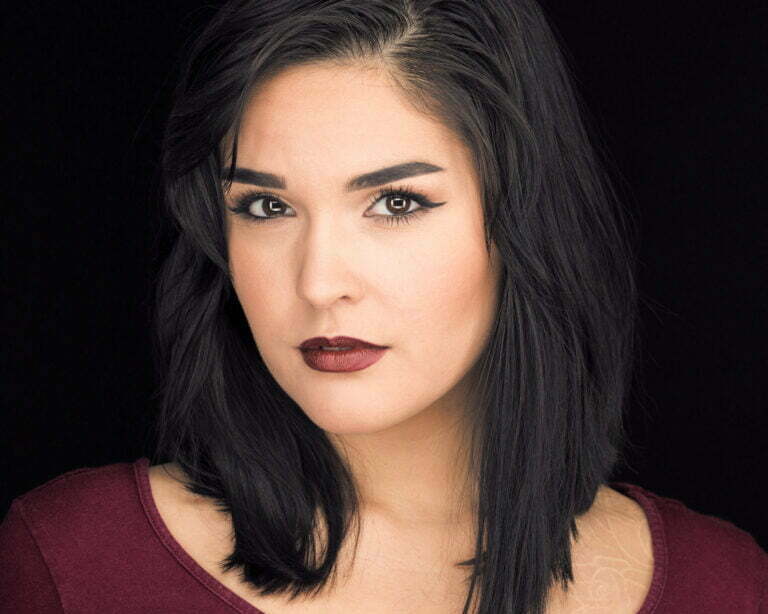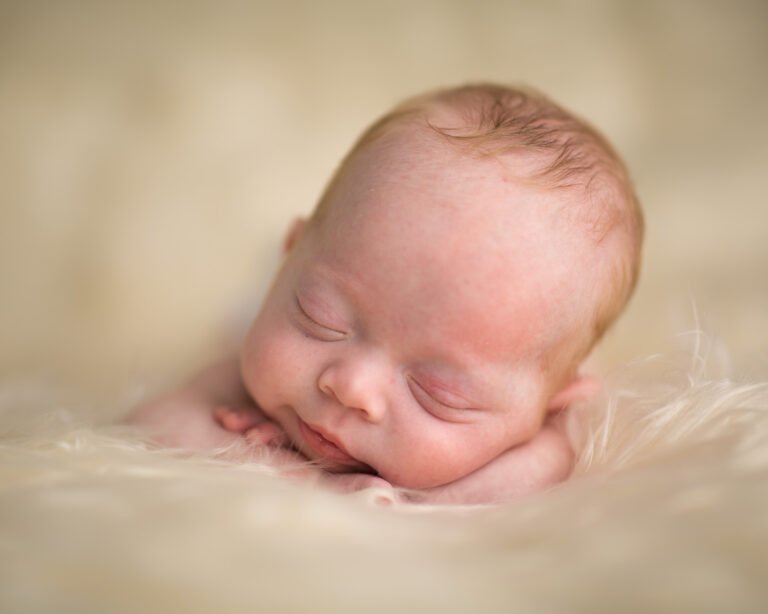Discovering the best camera for moms is more than just a tech quest; it’s about choosing a device that will preserve our most precious memories. This comprehensive guide explores top-tier choices at various price points, ensuring that every shot—be it a spontaneous smile or a family gathering holds up well over time. By delving into pros, cons, and key features, I’ll help you simplify the decision-making process based on your particular needs as a new mom.
The Best Cameras For Moms At Each Price Point
- Under $500: Canon R100
- Under $1,000: Canon Eos RP / Google Pixel 7 Pro / Sony A7II
- Under $1,600: Canon R8 / Sony A7 III / Nikon Z5
- Under $2,500: Canon R6 Mark II / Sony A7 IV / Nikon Z6 II
- Under $4,000: Canon R5 / Sony A7R V / Nikon Z8
This post may contain affiliate links, meaning I get a commission if you decide to make a purchase through my links at no cost to you. Please read my disclosure for more info.

Google Pixel 7 Pro – Best Smartphone Camera For Moms
For moms always on the go, the Google Pixel 7 Pro is currently my favorite camera phone to recommend to new moms. Offering some of the best camera hardware on the market, this phone is a good way to go if you’re on a budget and want a really good camera phone.
Since most of us always have our phones with us, you’ll always have a pretty good camera with you when those moments happen. In fact, for most moms, upgrading to a top-tier camera phone can be a smart move, eliminating the need to remember a bulkier dedicated camera when you go out.
While the image quality is amazing for what it is, it’s always good to remember that the photos will never be as good as dedicated cameras (especially in low-light scenarios). Additionally, the touchscreen interface, while convenient for beginners, quickly feels limiting to people who want to take their photography to the next level.
The bottom line is that if you’re on a budget, or feel like you’d leave your camera home because it’s just another thing to lug around, just consider upgrading your phone. It’s cheaper when compared to dedicated a camera system and it’s the camera you’ll literally always have with you.
Pros:
- Easier for beginners to use than any dedicated camera.
- Good autofocus.
- More portable than any dedicated camera making it more likely you’ll have it on you when you need it.
- Very durable when compared to entry level dedicated cameras
- Easiest option to instantly send photos to friends and family
- Very affordable, especially considering you’ll need a phone anyway.
Cons:
- Although image quality is great, it will never compare to a dedicated camera.
- Low-light performance will be noticeably inferior to a dedicated camera.
- Touch screen controls can make captures more difficult when tracking fast moving kids.

Canon R100 – Affordable Interchangeable Lens Camera For Moms

The Canon R100 is a standout for its impressive affordability, and in my experience, it delivers image quality that surpasses any smartphone, particularly in challenging low-light conditions. Its user-friendly menus are perfect for those new to photography, and despite being an APS-C mirrorless model, its compact size makes it highly portable.
This could be a game-changer for moms searching for the best camera. Its 4K video capability is a commendable feature, however, potential buyers should note rolling shutter effects, especially when capturing fast-moving kids. While its build might not be as robust as some high-end cameras or smartphones, and it lacks the immediate photo-sharing convenience of a phone, its overall value makes it a compelling choice for moms who want great image quality on a budget.
Pros:
- Insanely affordable
- Better image quality and low-light performance then any phone
- Beginner friendly menus
- Very portable for a mirrorless camera
- 4k video
Cons:
- Slower autofocus compared to R8 or above which can be an issue for trying to capture kids in action.
- No image stabilization
- Less durable then phones or higher end camera bodies
- Connectivity: Although you can transfer photos to your phone via the Canon connect app, it’s slow and clunky compared to a phone.
- Lens Mount: RF lens mount makes lenses more expensive, however you can adapt older EF lenses to this body for a lower cost.

Canon R8: Best Balance Between Image Quality and Cost

The Canon R8 elegantly strikes a balance, making it arguably the best beginner camera for moms. For starters, it beautifully caters to both worlds—offering user-friendly automatic modes for novices, while also accommodating those eager to explore semi automatic or manual settings. This versatility enhances its appeal.
Moreover, its autofocus system, boasting a high count of phase detection points, overshadows the capabilities of the R100. For those memorable twilight moments or indoor shots, its superior low-light performance—courtesy of a robust full-frame sensor—stands out, distinctly outclassing the R100 and smartphones with the best camera hardware.
Weighing its portability, the Canon R8’s compactness is a notable advantage for a full-frame camera. When it comes to price, it comfortably sits between the Nikon Z5 and Sony A7 III, offering commendable value for its features.
However, every camera has its trade-offs. Unlike its peers—Sony A7 III and Nikon Z5—the R8 lacks image stabilization, which might sway some towards its competitors. Its build doesn’t quite match the ruggedness of the Canon R5 or R6 Mk II. And while its single card slot suffices for many, those seeking backup capabilities during memorable family trips might view this as a slight drawback. But considering its strengths, the R8 is a worthy contender in its bracket.
Pros:
- Ease of Use: Easy to use automatic modes for beginners and more advanced features for those that want to shoot in semi automatic or manual modes.
- Quick Autofocus: High number of phase detection points for both photos and videos. Considerably better than R100.
- Good Low-Light Performance: Considerably better low light performance than the Canon R100 or phone thanks to it’s bigger full frame sensor.
- Portability: Compact size for a full-frame camera; relatively lightweight.
- Video Capability: UHD 4K recording with up to 160fps @1080P (amazing if you want slow-mo capability).
- Price: More expensive then Nikon Z5 But less than A7 III. All things considered it’s a good price for the features it offers.
Cons:
- Image Stabilization: R8 doesn’t have image stabilization when compared to its competitors Sony A7 III and Nikon Z5
- Durability: Not as rugged as Canon R5 or R6 Mk II.
- Storage: Single card slot only when compared to Sony A7 III and Nikon Z5. Might be an issue if you want backup capability for family vacations.


Canon R6 Mk II: Most Affordable Pro Level Camera for Moms

The Canon R6 Mk II bridges the gap between beginner and professional cameras. While it may not have the simplicity of the R100 or a smartphone, its Canon menu system is celebrated for its user-friendliness—even among pros. This makes it perfect for those eager to dive into manual settings and capture fleeting moments, especially with kids in tow. Its impressive autofocus and ISO range further reinforce its prowess.
However, it’s not without its compromises. The price, though reflective of its capabilities, might be a stretch for some. And while its construction is a step up from the R100 and R8, it doesn’t quite match the robustness of the R5.
All said, for many, the R6 Mk II stands out as the best camera for moms. It balances professional-grade features with value. And while the R5 remains the gold standard, I’d have no problem using this camera body as a backup for my business.
Pros:
- Ease of Use: Articulating touchscreen and app compatibility.
- Quick Autofocus: Both contrast and phase detection with a high number of points.
- Good Low-Light Performance: Extended ISO range.
- Image Stabilization: 5-Axis Sensor-Shift stabilization.
- Portability: Reasonably sized and weighted for its class.
- Video Capability: Advanced UHD 4K recording and external RAW capability.
- Connectivity: Dual-band Wi-Fi, Bluetooth, and GPS via smartphone.
- Storage: Dual card slots provide backup and flexibility.
- Touchscreen with that tilts and flips: Articulating screen aids in shooting versatility.
- Price: Just under $2,500 feels pretty affordable for the professional-grade features you get.
Cons:
- Price: even at it’s competitive price for features, this camera might still be out of reach for some on a budget.
- Durability: While it’s noticeably better built the then R100 or R8 it doesn’t feel as robust as the R5.

Canon R5: The Best Camera For Moms
For those diving into videography, the R5 truly excels, even if it might seem excessive for those not keen on manual settings. Its professional-grade capabilities make it one of the best cameras you can currently buy.
While its outstanding features are wrapped in a slightly bulkier but sleek design, I find that it’s too big to want to take with me everywhere. While its price is justified by its features, it might be too expensive for some. Additionally, its myriad of features could potentially intimidate newcomers. Yet, for moms who want the best captures possible, the R5 is, without doubt, my favorite camera body.
Pros:
- Superb image quality and low light performance.
- Extremely fast and accurate autofocus.
- 5 axis image stabilization.
- Better view finder and screen when compared to the R6 MkII.
- Tilt screen.
- Most durable of the dedicated cameras mentioned.
Cons:
- Bulkiest camera of everything mentioned, but still very slim considering what it can do.
- Price, although fair, will be too expensive for some.
- Might have too many features and be too complicated for beginners who just want to shoot in automatic modes.
- Pro level video capability might be overkill for most moms

Selecting the Right Camera For Your Needs
Selecting the best camera for moms can feel overwhelming with the myriad of options available. If you’re just starting to build your kit, I recommend investing in the Canon ecosystem at the moment as they have the easiest menu system to navigate and fantastic technological capabilities. Sony also makes very capable cameras but their menu system might be confusing for beginners. Nikon is also user friendly with decent tech, but their auto focus still feels as if it’s lagging behind both Sony and Canon.
Drawing from my personal experience as a children’s portrait photographer, the following are the things you’re going to want to think about when selecting the best camera model for your needs. The cameras in this post were recommended based on these factors:
- Ease of Use: As a new mom, there may already be plenty on the plate without having to fiddle with complex camera settings. A camera with an intuitive interface, easy point-and-shoot modes, and helpful auto settings would be ideal.
- Quick Autofocus: Kids move fast! A camera with quick and reliable autofocus can make the difference between capturing a fleeting moment and missing it. This is especially true after your kids start to walk.
- Good Low-Light Performance: Indoors, lighting can sometimes be challenging. A camera that performs well in low light would be beneficial for those spontaneous indoor shots.
- Image Quality: High-quality images capture memories vividly, but there’s often a trade-off between image quality and camera portability. While better quality often comes with larger cameras, consider what balance between detail and convenience works best for your needs.
- Image Stabilization: Whether it’s for still images or videos, image stabilization can help in getting clear shots, especially when trying to capture the unpredictable movements of kids.
- Portability: Feature rich cameras tend to be bigger while a phone is arguably the most portable camera that you’ll always have on you. Balance the quality of your images with what you’re actually willing to carry with you.
- Durability: Given that life with kids can be chaotic, a camera that’s sturdy, perhaps even water and dust resistant, would be a plus.
- Video Capability: Kids do the cutest things, and sometimes a still photo just isn’t enough. High-quality video recording with decent audio capture is great for those special moments.
- Connectivity: The ability to easily transfer photos to a phone or computer, whether it’s through text, Wi-Fi, Bluetooth, etc, should be considered.
- Touchscreen with Tilt or Flip Functionality: This can be handy for capturing from different angles, especially when trying to get down to a child’s eye level or taking overhead shots. It’s a nice option but not necessary.
- Price: Budget is a consideration for many but the bottom line is the more you spend, the better the features for each camera will be.

Best Camera For Moms: The Bottom Line
Choosing the best camera for moms involves more than technical specifications. It’s about choosing the right camera for your circumstance. This guide dives deep into the top picks across various budgets. Whether it’s a candid smile or capturing an epic family vacation, you deserve a camera that captures quality images.
The Canon R5 stands out as my personal favorite, though the Google Pixel 7 Pro offers superb value for those prioritizing portability and budget. The Canon R100, on the other hand, stands as an affordable choice with quality that outshines smartphones, especially in low-light.
If you’re venturing into more professional territory, the Canon R6 Mk II might be the best camera body for you. With its user-friendly menu and professional features, it’s also a worthy contender for the best camera for children’s portraits. Remember, the right camera for you balances ease of use, image quality, portability and your budget. Always prioritize what matches your specific needs.





